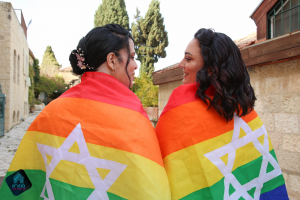Reduced Inequalities


Home » Reduced Inequalities » SDG 10 – Equality Watchdogs on the Job
SDG 10 – Equality Watchdogs on the Job
If the hundreds of entries that we’ve posted here demonstrate anything, it’s that the BIG story of Israel in the past decade is a forward march toward reducing equality. We see no slowing down – neither in budgets, nor in the public discourse.
Ongoing political instability notwithstanding, the sacred work continues to be carried out 24/7 by committed senior officials manning the country’s social equality eco-system. Nobody exemplifies this better than our changemaker, the head of Israel’s Equal Employment Opportunities Commission, in her job since 2016; besides managing cases, handling litigation and of course fielding complaints, she has been cranking out critiques for public consumption ever since.
According to her latest annual report (Hebrew), issued in early November, during the course of 2021 the Commission dealt with almost 1,000 complaints – 63% from women (16% of those involving discrimination connected with their pregnancy). The data further indicates that 28% had to do with job conditions and another 23% with dismissal or relevant compensation; in addition, 12% came from Arab citizens (with 30% of these attributed to ethnicity).


The Commission also publishes its annual “Diversity Index,” an in-depth survey of representation and wages among under-represented groups in Israel’s private and public job markets; this report is recognized abroad as particularly unique in the field. The most recent annual edition, released in May (Hebrew), for the first time also includes a six-year comparison (for the period 2015-2020). Here’s the gist of its gender equality findings:
- Both academic and non-academic Haredi-Jewish women have enjoyed an increase in representation and wages in prestigious industries;
- Academic women aged 45 and older have seen the most extensive increase in their wage equality compared to men in the same age group (however, they still earn no more than 85% of the equivalent male salary).
- Educated Arab women saw the most integration in representation out of all Arab workers (albeit not reflected in wages);
- The representation of Israeli Jews of Ethiopian background, mainly non-academic women, has increased (alongside meager wages).
We sleep better knowing that Israel’s Government social equality watchdogs remain vigilant in promoting SDG10 (and SDG5), whether in the work place or elsewhere.
Click here or on the image below to learn more about Israel’s radical spirit of equality, in the new world of employee-centric, labor force.
Related articles


SDG 10- Buy for Good – Economic Empowerment of People with Disabilities
Reduced Inequalities If the highest form of charity is to give someone their independence, then Buy for Good must be the most charitable organization out


SDG 10 – LGBT Pride Alive & Well
Reduced Inequalities Are you ready? Tel Aviv certainly is; the rainbow flag is flying throughout the city as pride month begins, and with it the


SDG 10- Travaxy – Equal Travel Opportunities for people with disabilities Never Felt So Right
Reduced Inequalities Whilst the travel industry has largely been put on hold due to the covid-19 pandemic, it’s an exciting and wonderful part of our



















